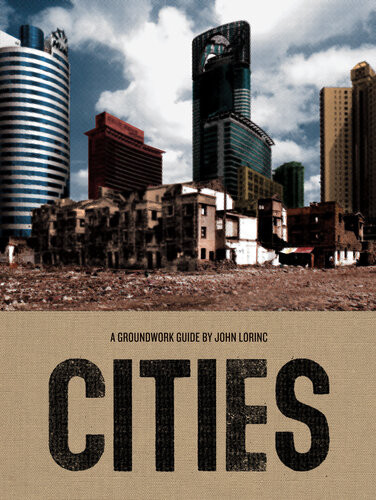

Most ebook files are in PDF format, so you can easily read them using various software such as Foxit Reader or directly on the Google Chrome browser.
Some ebook files are released by publishers in other formats such as .awz, .mobi, .epub, .fb2, etc. You may need to install specific software to read these formats on mobile/PC, such as Calibre.
Please read the tutorial at this link: https://ebookbell.com/faq
We offer FREE conversion to the popular formats you request; however, this may take some time. Therefore, right after payment, please email us, and we will try to provide the service as quickly as possible.
For some exceptional file formats or broken links (if any), please refrain from opening any disputes. Instead, email us first, and we will try to assist within a maximum of 6 hours.
EbookBell Team

4.3
78 reviewsA thought-provoking look at the demands and expectations we place on our growing cities in the twenty-first century. An excellent introduction to the subject for young adults.
Today, more people live in cities than in rural areas. The search for better housing, transit, economic opportunity, and security within neighbourhoods forces today's city-dwellers — in both the developed world and in megacities in Asia, Africa, and Latin America — to confront what it means to live in our urban world.
In this book, cities specialist John Lorinc considers the enormous implications of the mass migration away from rural regions, and predicts that solutions will emerge from neighbourhoods and dynamic networks linking communities to governments and the broader urban world.
"[The Groundwork Guides] are excellent books, mandatory for school libraries and the increasing body of young people prepared to take ownership of the situations and problems previous generations have left them." — Globe and Mail
Correlates to the Common Core State Standards in English Language Arts:
CCSS.ELA-LITERACY.RI.6.1
Cite textual evidence to support analysis of what the text says explicitly as well as inferences drawn from the text.
CCSS.ELA-LITERACY.RI.6.2
Determine a central idea of a text and how it is conveyed through particular details; provide a summary of the text distinct from personal opinions or judgments.
CCSS.ELA-LITERACY.RI.6.3
Analyze in detail how a key individual, event, or idea is introduced, illustrated, and elaborated in a text (e.g., through examples or anecdotes).
CCSS.ELA-LITERACY.RI.6.4
Determine the meaning of words and phrases as they are used in a text, including figurative, connotative, and technical meanings.
CCSS.ELA-LITERACY.RI.6.6
Determine an author's point of view or purpose in a text and explain how it is conveyed in the text.